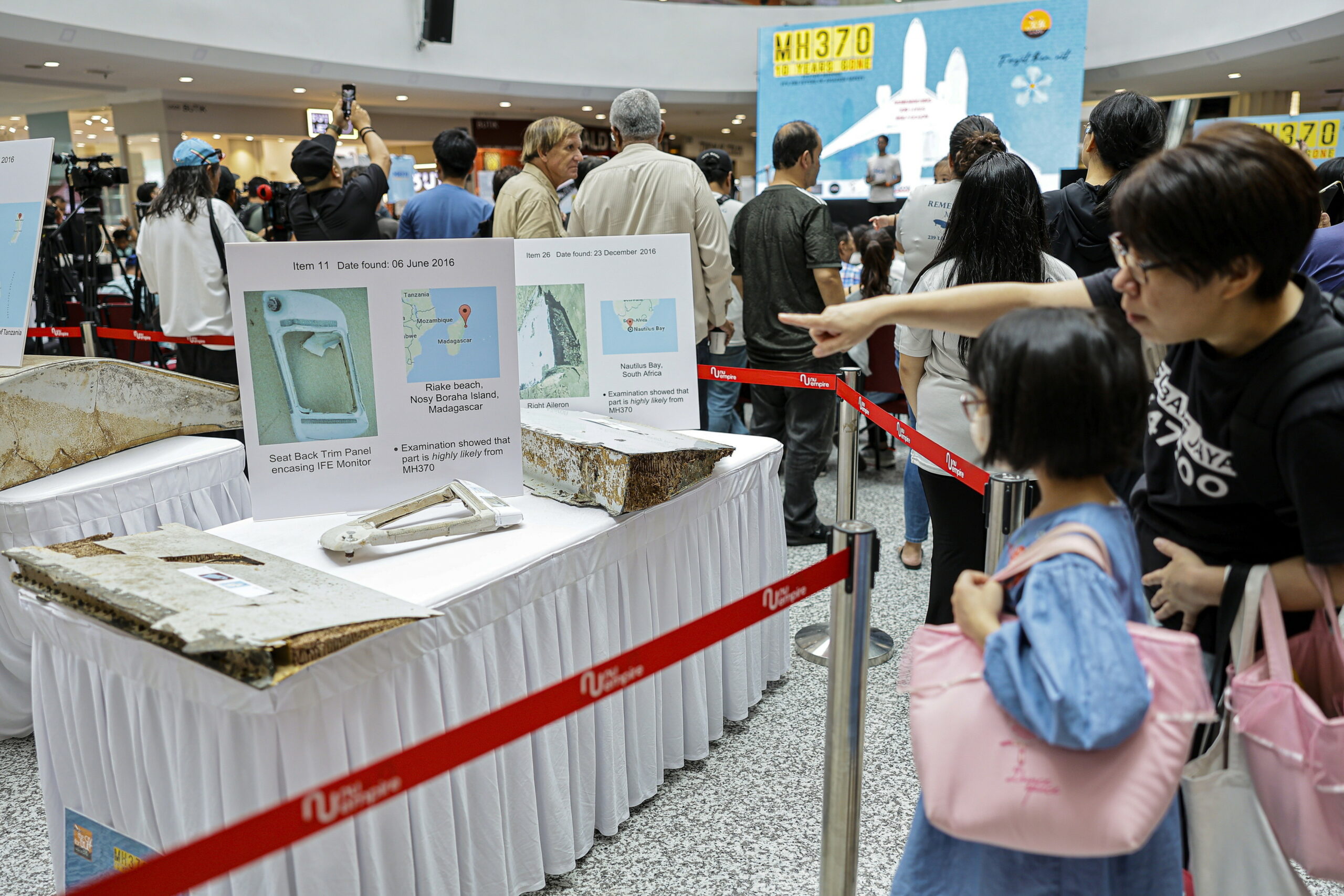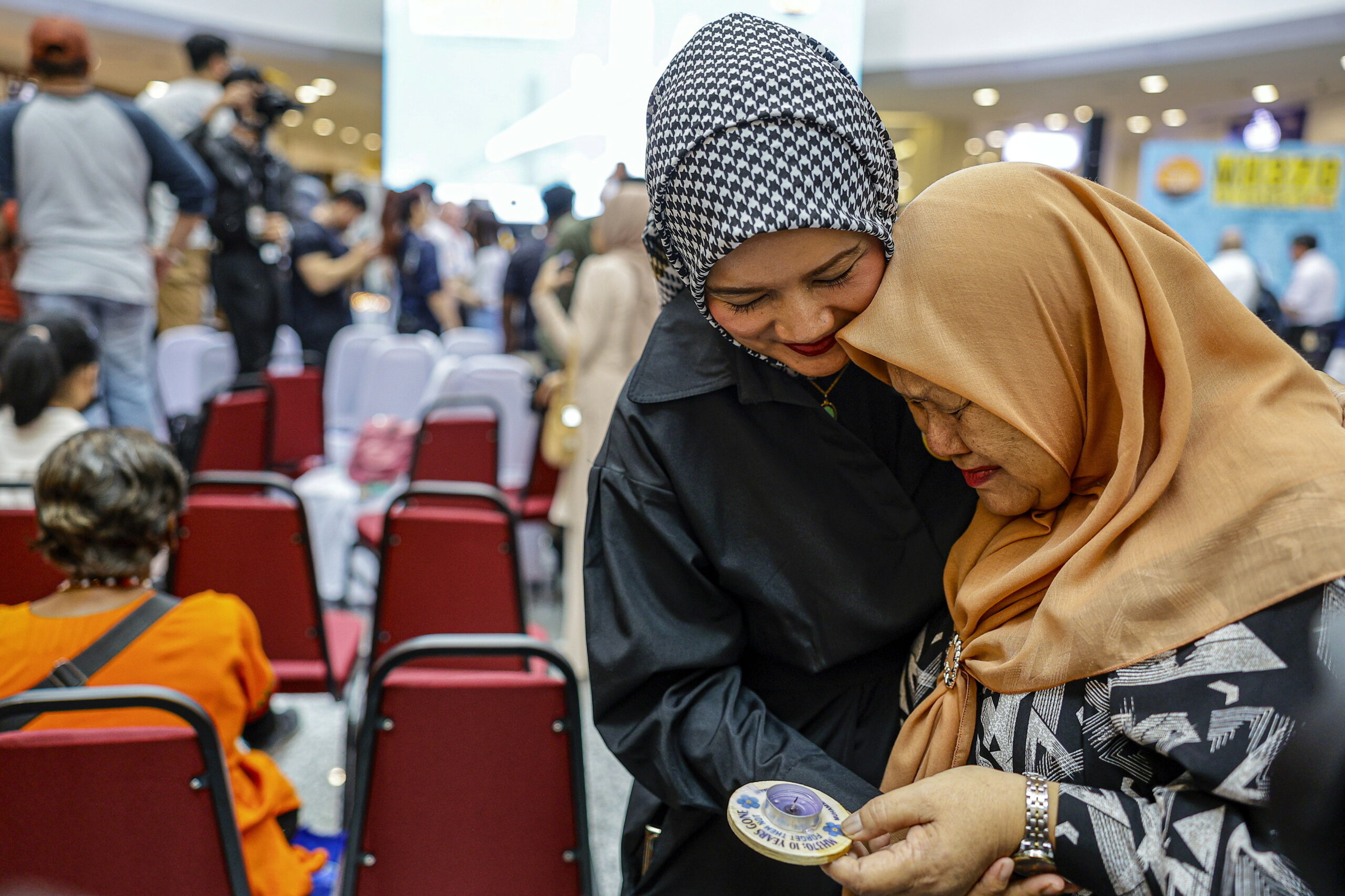KUALA LUMPUR (Bernama) — “Good Night, Malaysian Three Seven Zero” – that was the radio message sent from the cockpit of Malaysia Airlines Flight MH370 at 1.09 am, March 8, 2014.
A decade has passed since that fateful night, and nothing has been heard of the 239 souls onboard the Boeing 777 aircraft that disappeared without a trace after departing from Kuala Lumpur to Beijing at 12.42 am.
Even though the aircraft was tracked going through the airspace between Vietnam and Malaysia at around 1.30 am, no mayday message or distress signal was sent, sparking questions that still remain unanswered to this day.
The disappearance of MH370 would go down in Malaysia’s history as the country’s darkest hour in aviation, and the mystery soon captured global attention, with various aviation investigation bodies and experts assisting and offering their opinions.
The exhaustive search effort became the most expensive and biggest operation undertaken in the history of the country, with a total of 82 aircraft and 84 vessels from 26 countries participating during the 1,169 days of scouring the ocean floor, covering an area of 232,040 square kilometres.

The little evidence the search turned up did little to shed light on the disappearance, with only three pieces of debris known as flaperons found on a beach in the Indian Ocean positively identified as coming from MH370.
Closure is hard and mostly impossible for the families of the missing passengers and crew, each having had to pick up the pieces and accept the loss of their loved ones. The pain and anguish they have had to endure – 3,648 days and counting – would be hard to fathom and even harder to put into words.
Yet, during the 10-year anniversary memorial, MH370: 10 Years Gone, held at a shopping mall in Subang recently, some of them still hold out hope for evidence and truth.
“It’s natural to want to know what happened when we suffer a loss, where they have gone,” Intan Maizura Othman, 44, the wife of cabin crew Mohd Hazrin Mohamed said.
Jacquilita Gonzales, 61, wife of fellow cabin crew Patrick Gomes, concurred, and expressed hope that the search for MH370 would resume, so that her loss would not remain a mystery, and perhaps serve as a deterrent against a similar incident in the future.
“Each year as it goes on, it gets a little bit better, because we know we can’t do anything about it but wait for something search to start on again to find the plane, but we still keep on with our lives, we still go to work, this is a tragedy but we can’t let it stop us, we still need to get on with our lives,” she said.
Bai Zhong, the husband of Chinese passenger Hou Aiqin, shared that he had had enough of listening to speculation from irresponsible parties and demanded that the government continue with search efforts.
“We want to say that no matter if it’s been ten years, twenty years, or even longer, as long as we are alive, we will not forget our loved ones, nor will we cease our quest for the truth,” he stressed.

The last known location of the aircraft – ending in the Indian Ocean on the west of Perth Australia – was announced by then Prime Minister Najib Tun Razak in March 2014.
About a year later, Datuk Azharuddin Abdul Rahman, who was the Department of Civil Aviation director-general at that time, declared MH370 had suffered an accident under international aviation regulations, with all 227 passengers and 12 crew assumed dead.
Ocean Infinity, the United States-based exploration company that launched the search for MH370 on Jan 22, 2018 in the Indian Ocean, was forced to call it off after failing to find any debris of the aircraft.
Azharuddin, in his book “The Last Flights of MH370 and MH17: A Firsthand-look” described the search as “like looking for a needle in haystack”, adding that the government had to look for the aircraft no matter how hard so that it had a definitive ending.
He also touched on the various MH370 conspiracy theories that linger to this day – that the pilot was the cause of the disappearance, that the plane had been hijacked or controlled remotely, had encountered technical difficulties and that the aircraft was actually in Mindanao, the Philippines.
“As long as the wreckage is not found, there will be a lot more speculation about the fate of MH370, especially unsavoury ones,” he wrote.
Now, five long years after the search was called off in May 2018, there seems to be a ray of hope for the grieving families, as Prime Minister Datuk Seri Anwar Ibrahim has stated his readiness to reopen the investigation into the loss of the plane if there is new concrete evidence.
The Transport Ministry has also provided assurances that it would do its best to obtain Cabinet approval to sign a new contract with Ocean Infinity to resume the search.
Universiti Kuala Lumpur (UniKL) Aviation Technology Institute Search and Rescue Unit Head Assoc Prof Major (PA) Dr Mohd Harridon Suffian told Bernama recently that he had hopes that a more concrete answer to the air tragedy could be found even though a decade had passed.
“It is a long term effort but if we use labs, the expertise we have both local and abroad to conduct more detailed studies, methodological analysis and structure analysis, and look at debris patterns, we might actually find out what happened to MH370,” he added.
If Ocean Infinity is permitted to begin a new phase of the search, things that need to be considered include their new search methodology to ensure they have a better search process than before.
As we commemorate the 10-year anniversary of MH370’s disappearance, the question on everyone’s mind is whether there will ever be an appropriate close to this sad meaningless tragedy.





